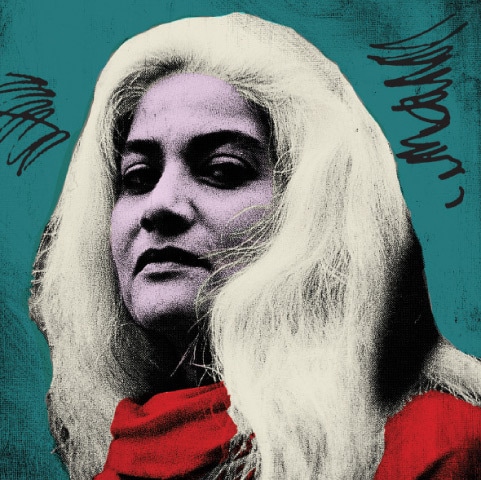
As the year draws to a close, many experience an end-of-year fatigue, as people assess the year’s losses and gains. This year is dominated by the exhaustion of nations.
It has been a year of protests by the affronted — the inaction over the Palestinian genocide, the panic of US citizens over the recent extremely polarised elections, or Pakistanis reeling with disbelief over the macabre spinning of events that challenge the predictions of the most seasoned political pundits.
There is a contest of “who will blink first” rather than the glorified ideals of right and wrong. It has reached a point of no surrender, as each side is in a fight for survival, unable to concede defeat as the stakes are too high. There will be regrouping, debriefings, reassessments of strategies, and new plans of action.
Stephanie Van Hook, Executive Director at the Metta Centre for Nonviolence, says it is not about putting a different kind of person in power — it is about awakening a different kind of power in people. We are witnessing spontaneous uprisings rather than managed revolutions. For it to not be the lighting of a match that burns out quickly but a sustained movement to make lasting change, requires turning attention inward, “away from our conditioned responses that we have developed over time to maintain some kind of order in our minds.” Martin Luther King Jr warned against “outbursts of anger”, insisting that, instead, anger must be “harnessed under discipline.”
Amidst the turmoil and polarisation that has defined this year, hope lies in slowing down, introspection and finding new strategies for lasting change
How does one take time out in a crisis to think deeply and prevent burnout? Restlessness and unrest imply their opposite — rest.
The journalist Elena Bilheimer, in her article ‘What is the Role of Rest in the Revolution?’, says urgency thinking is what caused the present crisis: “Rest isn’t an excuse to do nothing, but rather a chance to reflect and engage in the issues with more creativity and flexibility.”
The idea of rest is a growing field of study. Seven types of rest are contemplated: physical, mental, sensory, emotional, social, creative and spiritual. Rest is a fertile state. When the mind is not occupied with a specific task, it is not inert but active. The parts of the brain that deactivate when responding to external stimuli allow introspective processes during periods of rest. The novelist John Steinbeck wrote, “A problem difficult at night is resolved in the morning after the committee of sleep has worked on it.”
The Quran mentions night as a means of rest and the day a means of revival. Subh-e-Nau [a new morning] is often presented as a cornerstone of hope. The Sufi khanqah is a retreat essential for receiving spiritual knowledge, as was the Egyptian desert for Christian monks, or the forest for Buddha.
Rest of the mind can also be achieved through activities like sports or walking. The camaraderie that develops as thousands walk on protests, listening to inspiring music, seeing to each other’s needs during roadside stops or during confrontations, is a less-acknowledged opportunity to reflect, listen and deepen understanding.
The prolific creator Leonardo Di Vinci revealed: “Every now and then, I go away, have a little relaxation, for when you come back to your work, your judgement will be surer… Go some distance away, because the work appears smaller and more of it can be taken in at a glance, and a lack of harmony or proportion is more readily seen.”
Author and scholar Bayo Akomolafe enigmatically states, “The time is very urgent — we must slow down.” He says we need to seek fugitive spaces, sanctuaries “where we can shape-shift and consider a kind of slowness and deep listening.” He cautions against using war-like words such as ‘combatting’ and ‘fighting’ for the efforts to address climate change, racism, tyranny or inequality, otherwise “we’re reinforcing the system we’re trying to escape.”
A revolution in Pakistan cannot be the simple binary revolutions of 1789 in France or 1917 in Russia, but is an entangled woven fabric, in which finding the threads of oppression and resistance are difficult. As Akomolafe reminds us, there are “multiple worlds between justice and failure, between victory and defeat.”
Martin Luther King Jr, in his address to students in 1965, said, “There is nothing more tragic than to sleep through a revolution… Anyone who feels that we can live in isolation today, anyone who feels that we can live without being concerned about other individuals and other nations is sleeping through a revolution.”
He quoted the poet John Donne: “Any man’s death diminishes me,/ For I am involved in mankind./ Therefore, send not to know/ For whom the bell tolls,/ It tolls for thee.”
Durriya Kazi is a Karachi-based artist.
She may be reached at
durriyakazi1918@gmail.com
Published in Dawn, EOS, December 8th, 2024












































